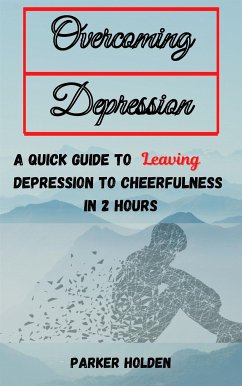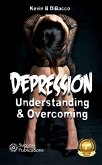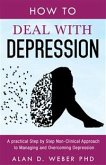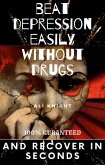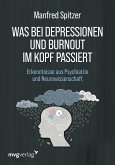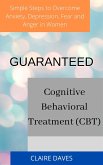Depression treatment is often tough, following a traumatic event or the death of a friend or relative. However, there are clinically depressed people who may not need a trigger for depressive episodes, and who will seem to lose their motivation to do the simplest tasks. People who cut ties with friends and relatives, and who may spend more time sleeping than usual, may be depressed. Treatment for depression can include drugs like Prozac or therapy, and in many cases medication is not necessary for a long period of time. Telling people to "snap out of" depression is not helpful and may in fact worsen symptoms. It is already difficult for a person suffering from depression to think about the bright side of common problems, or see a way out of a difficult situation, but therapy and medication might just be the answer, if only to alter the way the brain processes information and bring new light to the challenges of living.
Recently, it has been found that stroke victims may suffer from depression but are not getting treatment, and this can be especially difficult when strokes result in cognitive or physical impairments that make communication difficult. A stroke victim may have a very hard time with therapy or reconciling the radical lifestyle change brought on by such an event, so psychiatric help, even when symptoms are not readily present, may be advised at least for an evaluation.
Symptoms of depression include an all-encompassing low mood, bad self-esteem, and a loss of interest or pleasure in normally fun pursuits. Depression is classified as a mood disorder, but can be classified as major depressive disorder, recurrent depressive disorder, clinical depression, major depression, and unipolar depression. This may separate depression from bipolar disorder, in which manic and depressive episodes happen intermittently. The social stigma of depression may make people choose to hide their symptoms, so it may be difficult to tell who is depressed until a major breakdown. Depression may be hereditary, but there are also biological and chemical factors that play into the onset of depression itself. Treatment options which were once limited to electroconvulsive therapy and debilitating drugs are now plentiful, and in many cases different courses of treatment can be tried until the best outcome emerges.
This book is your sure guide to overcoming depression in the shortest possible time.
Recently, it has been found that stroke victims may suffer from depression but are not getting treatment, and this can be especially difficult when strokes result in cognitive or physical impairments that make communication difficult. A stroke victim may have a very hard time with therapy or reconciling the radical lifestyle change brought on by such an event, so psychiatric help, even when symptoms are not readily present, may be advised at least for an evaluation.
Symptoms of depression include an all-encompassing low mood, bad self-esteem, and a loss of interest or pleasure in normally fun pursuits. Depression is classified as a mood disorder, but can be classified as major depressive disorder, recurrent depressive disorder, clinical depression, major depression, and unipolar depression. This may separate depression from bipolar disorder, in which manic and depressive episodes happen intermittently. The social stigma of depression may make people choose to hide their symptoms, so it may be difficult to tell who is depressed until a major breakdown. Depression may be hereditary, but there are also biological and chemical factors that play into the onset of depression itself. Treatment options which were once limited to electroconvulsive therapy and debilitating drugs are now plentiful, and in many cases different courses of treatment can be tried until the best outcome emerges.
This book is your sure guide to overcoming depression in the shortest possible time.

